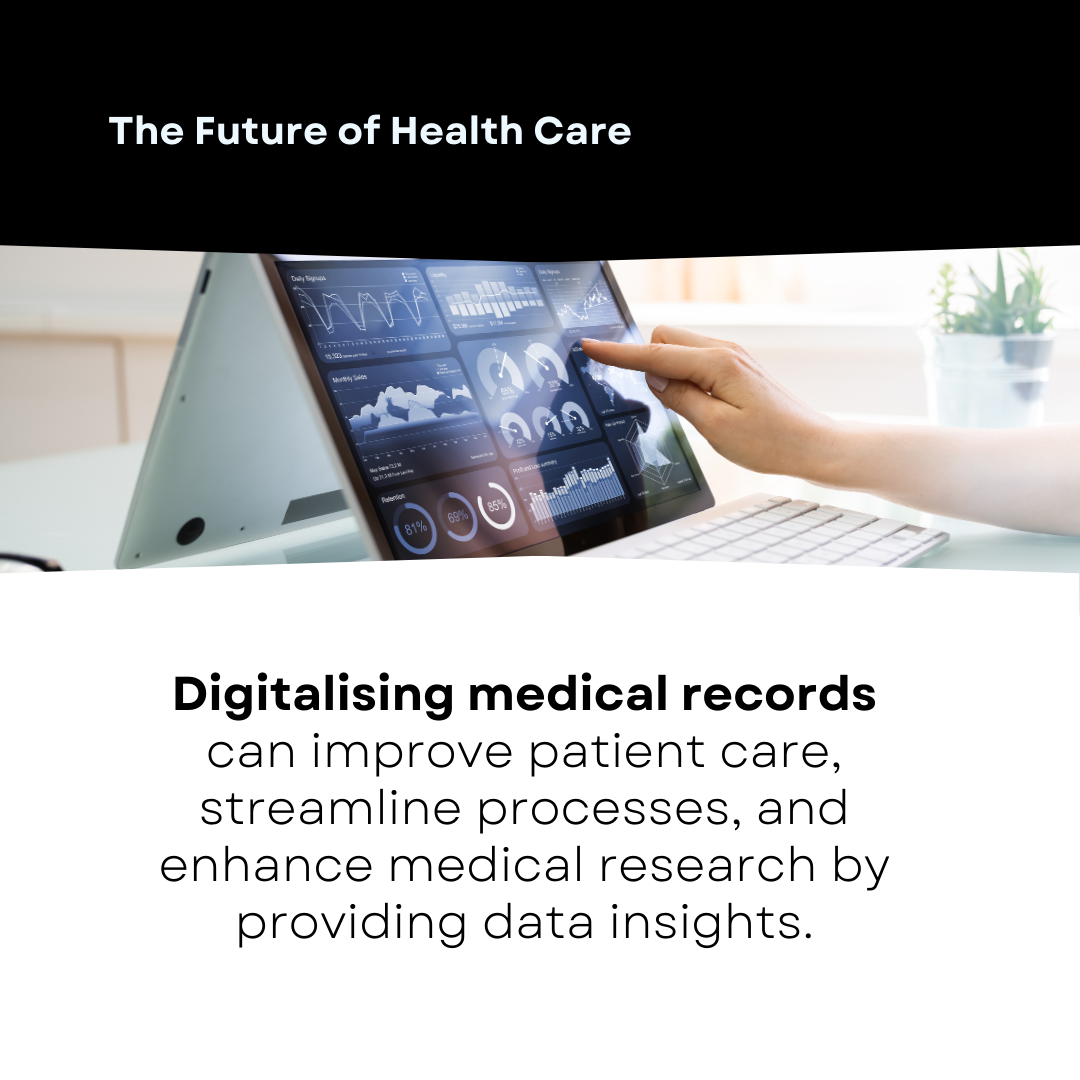The advent of the digital revolution has wrought significant transformations across various industries, and the healthcare sector is no exception to this sweeping change. The imperative to transition from traditional paper-based medical records to comprehensive electronic medical and health records (EMR and EHR) has shifted from a mere preference to an absolute necessity.
The digitalisation of medical records promises to improve accessibility for healthcare professionals vastly. Patient information becomes readily accessible with the simple click of a button, equipping frontline healthcare staff with immediate access to patient’s complete medical histories and the ability to seamlessly connect healthcare facilities with other pertinent services, including social care. Furthermore, institutions that have reached a high level of digital maturity are reported to be 10% more efficient than their counterparts.
Implementing electronic medical and health records also has the potential to enhance healthcare delivery and accuracy. EMR and EHR systems supported by artificial intelligence can assist in diagnosis, consolidate test results, optimise care pathways, and enhance the management of triage and waiting lists. Eliminating unnecessary referrals and reducing data duplication become straightforward tasks in such a digital environment.
In addition to its operational advantages, reducing reliance on paper-based medical records carries cost-saving benefits, including decreased storage expenses and an eco-friendly approach. A well-established EMR and EHR system can also facilitate measuring outcomes such as patient-reported outcome measures (PROMS) and patient-reported experience measures (PREMS) while enhancing governance within the healthcare sector.
Moreover, consolidating data in a single accessible repository aids in conducting audits, fostering research initiatives, conducting policy reviews, and crafting protocols, all of which ultimately contribute to saving lives.
Recognising these substantial advantages, the UK government has established a goal for all NHS trusts to possess essential digital capabilities, including electronic health records, by March 2025. A significant budget of £2 billion has been allocated to facilitate the digitisation of the NHS. To ensure the effectiveness of these digital technologies, they must adhere to technical standards encompassing interoperability, usability, clinical safety, cybersecurity, and sustainability.
The transition towards fully digitalised healthcare is no longer a luxury but an imperative that promises to revolutionise the delivery of healthcare services.
By Dr Omar Aldalati, MD, PhD
Medical Notes Solutions media team

